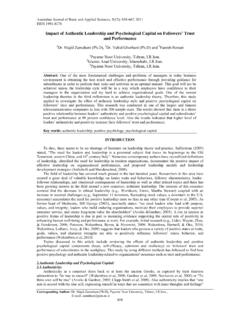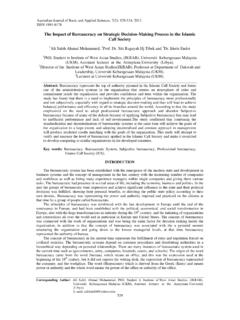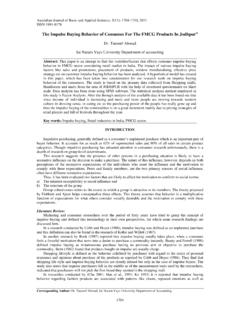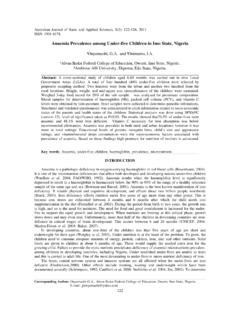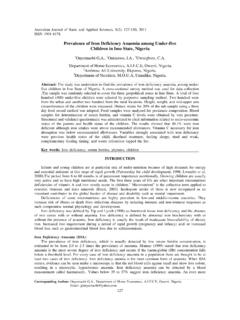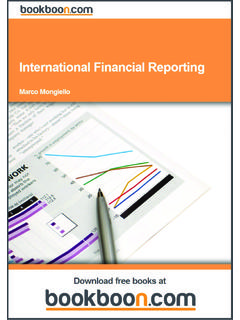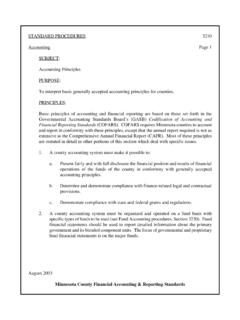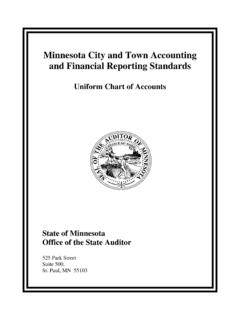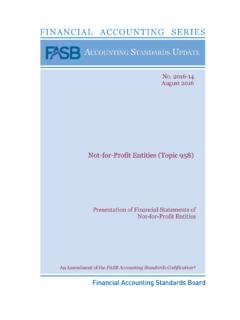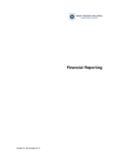Transcription of The Benefits And Challenges Of Financial Reporting ...
1 Australian Journal of Basic and Applied Sciences, 6(7): 98-108, 2012 ISSN 1991-8178 Corresponding Authors: Morni Hayati Jaafar Sidik, Morni Hayati bt Jaafar Sidik and Rahizah bt Rahim are Lecturers at the Faculty of Accountancy and Management, University Tunku Abdul Rahman, Lot PT 21144, Jalan Sungai Long,Bandar Sugai Long, Cheras, 43000 Kajang, Selangor Darul Ehsan, Malaysia 98 The Benefits And Challenges Of Financial Reporting standards In Malaysia: Accounting Practitioners Perceptions 1 Morni Hayati Jaafar Sidik, 2 Rahizah Abd Rahim 1 Morni Hayati bt Jaafar Sidik and Rahizah bt Rahim are Lecturers at the Faculty of Accountancy and Management, University Tunku Abdul Rahman, Lot PT 21144, Jalan Sungai Long,Bandar Sugai Long, Cheras, 43000 Kajang, Selangor Darul Ehsan, Malaysia 2We are grateful for constructive comments by Amalina Ismail.
2 Abstract: The Malaysian Financial Reporting framework is keeping pace with the global development. Thus, from 1 January 2006, Malaysian companies are required to implement all the Financial Reporting standards (FRS) issued by Malaysian Accounting standards Board. The new FRS ensures that Malaysian accounting standards are aligned with the International Financial Reporting standards (IFRS). In addition, Malaysia has set 1 January 2012 as the deadline for full convergence with IFRS which is applicable to all entities except private entities. The convergence with IFRS though challenging will place Malaysian companies and capital market on a level playing field with other international economies and markets.
3 This paper explores the Benefits and Challenges of FRS in Malaysia from the perspectives of accounting practitioners using questionnaire survey. The findings of the study indicate that the majority of the accounting practitioners viewed that FRS has both Benefits and Challenges . Key words: Financial Reporting standards , Malaysia, Perceptions, Accounting Practitioners INTRODUCTION Currently, there is a worldwide trend for a move towards converging local accounting standards with the International Financial Reporting standards (IFRS) issued by the International Accounting standards Board (IASB). The standards are now used by various countries around the world, and emerging economies such as Korea, India and Canada have announced IFRS convergence by 2011 (Accountants Today, 2008).
4 According to the survey by Deloitte Touche Tohmatsu (2010), more than one hundred countries around the world have either adopted or intend to adopt the IFRS for their domestic companies. As of December 2011, China on the other hand has substantially converged their national standards with IFRS (IFRS Foundation, 2012). The European Union (EU) was the first group of industrialised nations to announce its intention to support convergence with the IFRS. The European Commission (EC), which is the EU s permanent civil service, announced in June 2002 that all listed companies are required to prepare consolidated Financial statements in accordance with IFRS adopted from 1 January 2005.
5 Besides that, countries such as Hong Kong, Singapore and Australia have also move towards IFRS platform from 1 January 2005. On the other hand, Malaysian companies are required to implement all the Financial Reporting standards (FRS) issued by Malaysian Accounting standards Board (MASB) from 1 January 2006. The MASB is the sole authority body that deals with accounting standards in Malaysia. The decision to defer the implementation was to give Malaysia a grace period to learn from other countries experiences (MASB, 2005). The move by MASB to adopt IFRS is a reflection of Malaysia s commitment to align with global accounting standards in order to converge to one common set of accounting standards for the entire developed world in this age of cross-border trading (Lazar, Tay and Othman, 2006).
6 Malaysia has also set 1 January 2012 as the deadline for full convergence with IFRS. In conjunction with full convergence, MASB has issued a new MASB approved accounting framework, the Malaysian Financial Reporting standards (MFRS Framework) in November 2011 which finalises MASB Exposure Draft 75 IFRS-compliant Financial Reporting standards which was exposed in June 2011. The MFRS Framework is to be applied by all Entities Other Than Private Entities for annual periods beginning on or after 1 January 2012, with the exception of entities that are within the scope of MFRS 141 Agriculture (MFRS 141) and IC Interpretation 15 Agreements for Construction of Real Estate (IC 15), including its parent, significant investor and venturer (MASB, 2011).
7 The convergence with IFRS though challenging will place Malaysian companies and capital market on a level playing field with other international economies and markets. In addition, the adoption of the MFRS Framework is a noteworthy achievement for the capital market as entities will be able to assert that their Financial statements are in full compliance with IFRSs as it is a fully IFRS-compliant framework and equivalent to IFRSs. Numerous studies have focused on harmonization and convergence of Financial accounting information in advanced capital market such as Europe and Australia, addressing impediments to convergence and providing Aust. J. Basic & Appl.
8 Sci., 6(7): 98-108, 2012 99 the level of adoption of IFRS in the consolidated statements of listed European and Australian companies (Larson and Street, 2004; Jermakowicz, 2004, Jones and Higgins, 2006). However, less attention was given to the impacts of implementing IFRS in the developing countries. Among the available literature are studies in United Arab Emirates (Aljifri and Khasharmeh, 2006) and in Bahrain (Joshi, Bremser and Al-Ajmi, 2008). As noted by Joshi et al. (2008), more studies on developing countries are needed to provide a research base for policy and implementation decision. Tan, Lazar and Othman (2007) commented that the transition to FRS represents one of the biggest Challenges to Malaysia Reporting entities.
9 This is because adoption to FRS will mean adopting a new set of accounting standards (Cope and Clark, 2003). Apart from that, the preparer of the accounts or accountants will be the most affected as adoption to FRS will dramatically change the way in preparing the Financial statements (Ravlic, 2005). However, Joshi et al. (2008) observed that there are still a few studies that have examined the judgement of professional accountants in interpreting and applying accounting standards . Therefore, The purpose of this paper is to study the Benefits and Challenges of the FRS from the perspectives of Malaysia as a developing country. This study also aims to contribute to the existing literature in IFRS adoption and at the same time to serve as the preliminary basis for future research on the adoption of IFRS in Malaysia.
10 The remainder of this paper is structured as follows. The next section will discuss the literature review. The third section will explain the methodology used. The results and analysis are presented in the fourth section followed by a summary in the final section. Literature Review: Several researchers (Goodrich, 1982; Nobes, 1992) have found several reasons that caused international differences in Financial Reporting systems by various jurisdictions. Among them are different legal system, culture and funding sources. Due to these differences, various accounting practices and Reporting for items such as goodwill, depreciation, pensions and leases are available.
